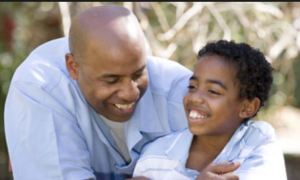
We’ve seen the ALS Ice Bucket Challenge go viral over the last two weeks on social media; people happily dumping buckets of ice water over their heads to raise money for a worthy cause. During this same period of time, Michael Brown was killed in Ferguson, Missouri and protests have continued in that city and around the country. In the aftermath of the death of Michael Brown, may we engage thoughtfully and critically in examining the situation in Ferguson and stand together on the side of justice and equality?
We need to make empowering choices to actively plan how to take actions that will dismantle injustice when it happens in America. So here’s a #FergusonChallenge:
Share a story about how the events in Ferguson have resonated with you, and then donate to an organization that promotes underserved youth, racial justice, and/or police accountability.
Here a story that resonates with TURNING STONEchoice. It is one of the Letters to the Editor of the St. Louis Post-Dispatch titled When Ferguson Hits Home August 21, 2014
I never thought I would be living so close to conflict. If I jumped on the highway and zoomed down a few exits, I’d be visiting Ferguson. We are that close, yet we are so far away. Our entire city and country has become focused on what is, and even more alarming, what is not happening in a town within our town. Yet we attempt to put distance between our neighborhoods, just like we attempt to say what’s happening in the Middle East is happening “over there.” Well, folks, “over there” just came to our backyards, and it is madly screaming for our attention.
None of us know the whole story of the incident that led to this massive turmoil my neighbors are embracing without choice. I grieve with every single person involved in this story. There is not one person who is unaffected by this tragedy, including those of us who attempt to drown out the sirens because it’s happening “over there.” It’s “here,” people. The world is watching us, and most importantly our children are silently observing every step we take.
I wonder what would happen if we embraced all those who were hurting tonight, and realized that grieving is actually taking place on both sides of the police line. What if we all held ourselves accountable and allowed each other to take a deep breath when confusion, fear or anger sets in to release a potential breath of hope? I wonder if we’d find peace.
Jen McCurdy • St. Louis County
The choice is yours to empower your children and help guide them through purposeful and empowering choice making to help end intolerance and create a peaceful world.
As TURNING STONEchoice always teaches children and adults in our communities, and as the writer of this letter suggests, the first thing we must do is to take that “breath of hope”.

ACLU of Missouri Foundation: http://www.aclu-mo.org/get-involved/
Amnesty International: http://www.amnestyusa.org/donate-to-amnesty
Ferguson Youth Initiative: http://fyifergyouth.org/
Ferguson Bail Fund: http://antistatestl.noblogs.org/…/bail-and-legal-fund…/
Or buy an “I Am Human” tee-shirt to support protestors on the ground: http://teespring.com/IAMHUMANDONTSHOOT






